Depression vs Recession: Are You Prepared?
Depression vs Recession: Are you prepared? As we saw the economy take a hit due to the effects of the pandemic over the past few years, many of us are still wondering if there will be a recession or a depression. When it comes to being prepared for difficult times, we not only need to prepare the food and water we’d need to have stored, but we also need to be able to see trends to know what is coming from a financial standpoint. Based on what I’m seeing and hearing about the economy, here are some things you need to know from my perspective as I update this post from a few years ago.
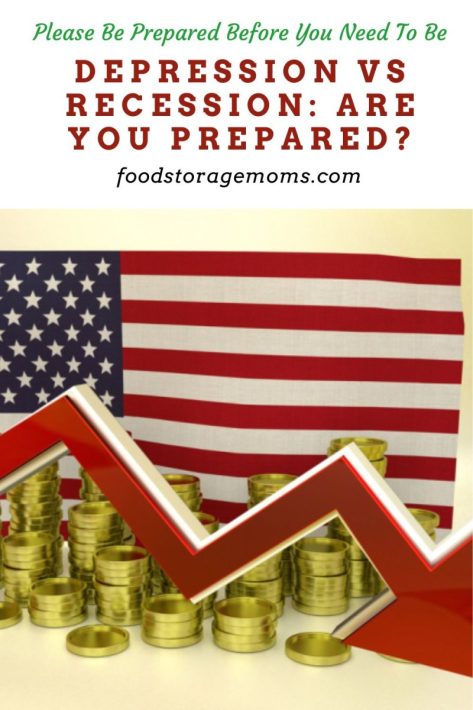
My View of Crime and Unemployment
As far as the unemployment rate being low, is it? I’m not an economist, I’m a grandma, mother, and writer. I see these “smash and grabs” daily in areas all over the US. Plus, they are moving to more and more states, cities, and communities. Here’s the deal, these “professional smash and grab” people stock warehouses and resell the stolen merchandise.
They don’t need a job, that is their job. If they are arrested, which in most cases they are not, they are basically “catch and release” alleged criminals. Therefore, they will not need to collect unemployment benefits, they would make less money. I feel this affects the unemployment rate, it’s just me. What are your thoughts?
I have a friend in California who sells a fancy makeup brand to Nordstrom. Here’s the scary part, she never knows if some “grab and smash” groups will enter the store when she restocks supplies at this fancy store. It’s her job, her income, it pays her rent. She is afraid to enter the stores. These people are professional groups, and when I say groups, they come in large groups. They smash the glass display counters or grab fancy purses and shoes as they run in and then out within minutes using large black garbage bags.
Depression vs Recession: What is a Recession?
The last recession we experienced in the United States was from December 2007 until June 2009.
A recession is a period of economic decline often referred to as an economic slowdown or economic downturn. It can last for months or even years. Experts will declare a recession when our economy experiences negative gross domestic product (GDP), an increase in unemployment, falling retail sales as measured by reduced consumer spending, limited economic growth, and contracting measures of income and manufacturing / industrial production.
Recessions are considered unavoidable. It happens from time to time as part of our historic business cycle. The National Bureau of Economic Research (NBER) has the authority to define the starting and ending dates of a recession in the United States. Recently, Fed representatives are predicting a “soft landing” in the economy as the effects of high interest rates are minimized through anticipated rate reductions during 2024-2025.
What Causes a Recession?
Several things can cause a recession. When we know what can trigger one, we can best determine when and how to start preparing before anyone feels the ripple effects. Here are some things to watch out for when making your preparations:
- A sudden economic shock: This is a surprise problem, such as the pandemic shutdowns that can create serious financial damage as stores close, people are laid off, and the economy experiences a significant decline in business activity.
- Excessive debt: When individuals, businesses, or even the government take on too much debt, it can cause a recession. The housing bubble back in 2007 that caused defaults and bankruptcies is a prime example of excessive debt contributing to a recession. People were buying homes they couldn’t afford because the typical requirements weren’t being followed by the lenders.
- Asset bubbles: When people begin making investment decisions based on emotion, the happy bubble can pop. Panic selling can crash the market as investors lose the gains they had achieved.
- A high rate of inflation: Inflation isn’t always a bad thing when it is steady, but excessive inflation is dangerous. The Federal Reserve (Fed) targets an annual rate of inflation at 2%. They have used raising interest rates as a tool to cool the economy for the past couple of years since they felt the low rates were fueling the inflationary pressures.
- A lot of deflation: Just as too much inflation can cause a recession, too much deflation can as well. Deflation is when prices decline, but if they decline too much too fast, people stop spending which hurts the economy more.
- Changes in technology: New technologies increase productivity in the economy over the long term, but in the short term, it can cause a recession. For example, the Industrial Revolution made entire professions obsolete which sparked recessions as people couldn’t find work. Right now we are seeing some significant layoffs at some of the social media companies, but in the scheme of things, it shouldn’t affect the overall economy to a great extent.
If we don’t have most economic factors in balance and in moderation, a recession can and will happen. The reason recessions are typically unavoidable is because we always have ups and downs. Nothing in an economy stays balanced forever.
Since jobs can come and go, prices can go up and down, and life can change on a whim, it is always important to have enough food, water, and cash to get through a few months of a recession.
Depression vs Recession: What is a Depression?
The last time our country experienced a depression in this Century was when we had the Great Depression from the late 1920s to the mid to late 1930s.
Depression is a severe and prolonged downturn in the economy. It is typically defined as an extreme recession that lasts 3 or more years. Depression is less common than a recession. It tends to be accompanied by high unemployment and low inflation. The last depression was spawned by a high level of speculation and frenzy buying in the stock market supported and fueled by buying through debt. The run on the banking system made things even worse.
During a depression, you will see:
- Large increases in unemployment.
- The inability to get credit.
- A diminishing output in productivity.
- Consistent negative GDP growth.
- Bankruptcies are very common.
- Possible government debt defaults.
- A decrease in trade and global commerce.
- Bear market /downturn in the stock market.
- Falling currency values.
- No inflation or even deflation.
- An increase in savings rates to attract deposits.
What Causes a Depression?
We need to look out for trends that may cause a depression. Could we be slipping into one or are we just heading for a recession? The same things that cause a recession can also cause depression. That is what makes it hard to know if current trends will cause the economy to drift into a recession or a depression.
What you need to look for when it comes to an economic depression is how severe things are drifting downward. How severe is the economic shock? How severe is the debt? If you are seeing a rapid decline in everything and it is approaching the circumstances found in 2007, we may be heading for a depression and not a recession.
Depression Vs Recession: What’s the Difference?
Depressions and recessions are caused by similar situations. However, the overall impact of a depression is far greater than during a recession. With a depression, you will have greater job losses and higher unemployment, steeper declines in GDP. Additionally, a depression will typically last longer than a recession. This means the depression could be years not months!
Expert economists don’t really have a set definition or fixed measurement that shows the exact difference between the two. However, all the impacts of depression are thought to be deeper and last longer.
Are We Headed for a Depression or a Recession?
According to CNBC on June 9, 2020, we were officially in a recession, but others refute that. Are we headed for depression? Unemployment levels were at unusually high levels during the lockdowns, but the unemployment levels have seen significant drops over the past year and are better than many expected at this stage. There haven’t been comments in news reports about a depression, and few economists are expecting a major recession, let alone a depression, in the foreseeable future.
Even though this looks good at present, the world economy, and our own, could suffer some critical challenges as a result of the conflicts in the middle-east and the Russian / Ukraine war. This is because of the unsettling factors of shipping, particularly near the Red Sea region, gasoline deliveries within Europe, and the constant threat of cyber attacks. The cyber attacks have affected government agencies, healthcare facilities, and large commercial and financial enterprises.
Good Signs on the Horizon
It is hoped that we are in a much stronger position than in the 1930s and even since 2007 due to better reporting and controls within the stock market, tighter regulations and oversight of the real estate and mortgage markets, and new strength and diversification within the retail shopping and delivery systems.
We are seeing better wage structures in place for workers, employers are proving to be more flexible regarding work-at-home implementation, and education is placing more emphasis on STEM training stateside so future generations are better prepared, especially women in the marketplace. The stock market is showing strength in all sectors as stock prices go up, and as inflation is brought more under control real income levels for families are improving.
Government Policies
Today, the government has a lot of policy tools at its disposal to keep the economy from reaching a full depression.
With that being said, keep an eye on the current issues of our national debt and immigration, both factors that can have a direct effect on the economy.
How to Prepare for a Recession or Depression
Like I always say, it is better to prepare for the worst and hope for the best. In this case, I would suggest preparing for any possible downturn. I have written several posts on world financial challenges and how to prepare for them. To get a better idea of how to prepare, read some of my other posts, below:
- The Great Depression: What You May Not Know
- Build Your Own Great Depression Pantry
- Great Depression Meals-How to Eat for Less Money
- Shortages: Are they similar to the Great Depression
- 20 Tips from Grandma to Survive a Depression
Some Steps to Consider:
Some great advice in the short term is to work towards getting out of debt, have an emergency fund built up so you can cover at least a few months of expenses, diversify your investments, and have a retirement plan in place. In regard to the stock market, a bear market can take you by surprise, so don’t count on the current bull market to be the norm. Consider bonds, silver and gold, and other assets that have traditionally held their value through thick and thin.
Long-term planning could include evaluating your education and job training. There are lots of resources available to help you gain an understanding of market and job trends if you don’t see a strong employment future where you are now.
Final Word
An economic depression is much more severe than a recession. We have been through several recessions and survived just fine. Keep prepping! Stock up on food and water! I would suggest having at least a 6-month supply! If you can’t get that much right now, starting somewhere is better than nothing, one can or case at a time. Start with a can a week or each time you visit the store and work your way up. Work up to 2-weeks, then 3-weeks, a month, and just keep going. Remember, prepare for the worst and hope for the best! Please keep prepping, we must. May God bless this world, Linda
Copyright Images: Economic Collapse Deposit photos_2893414_s-2019, Currency Collapse American Dollar Depositphotos_58124959_S By M3ron

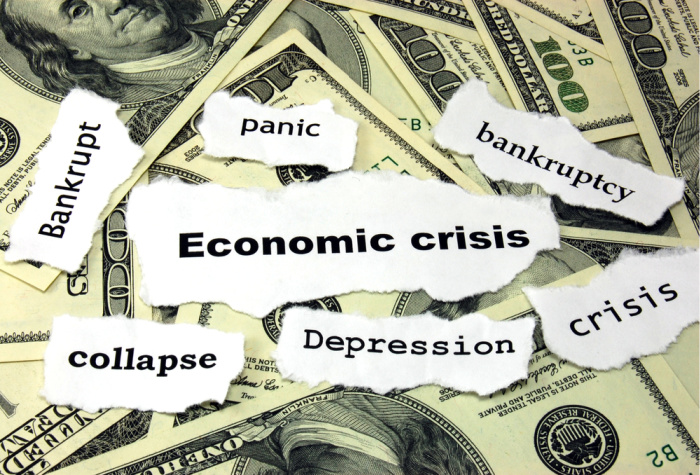


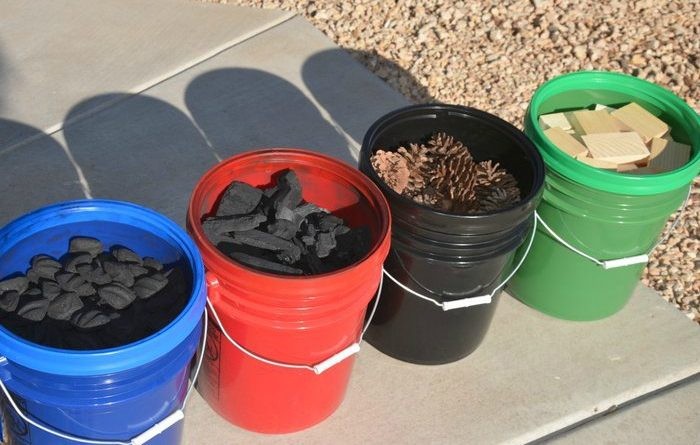
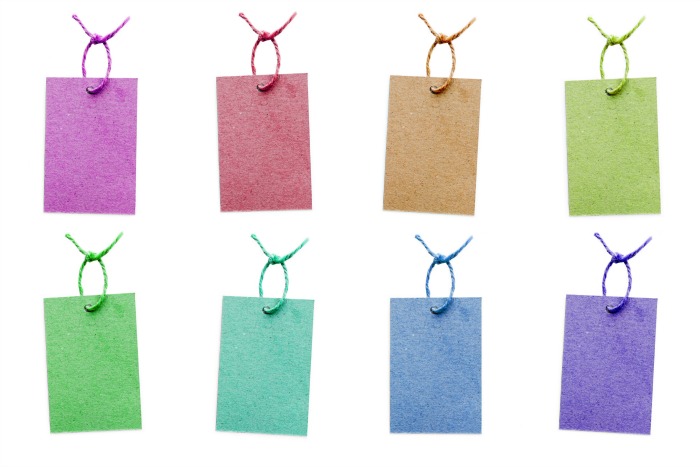
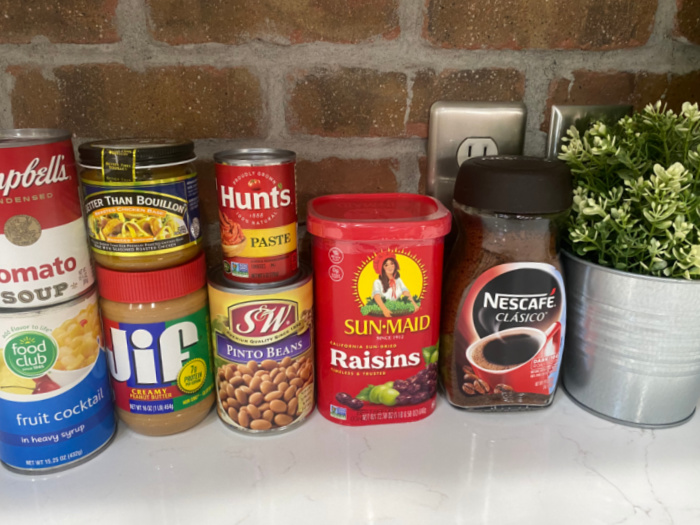
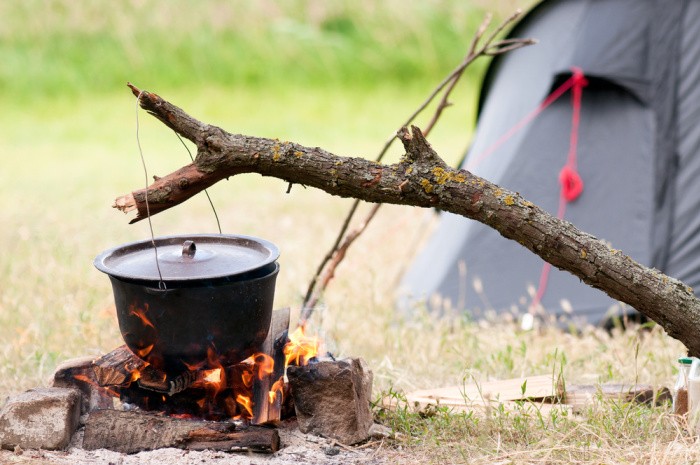


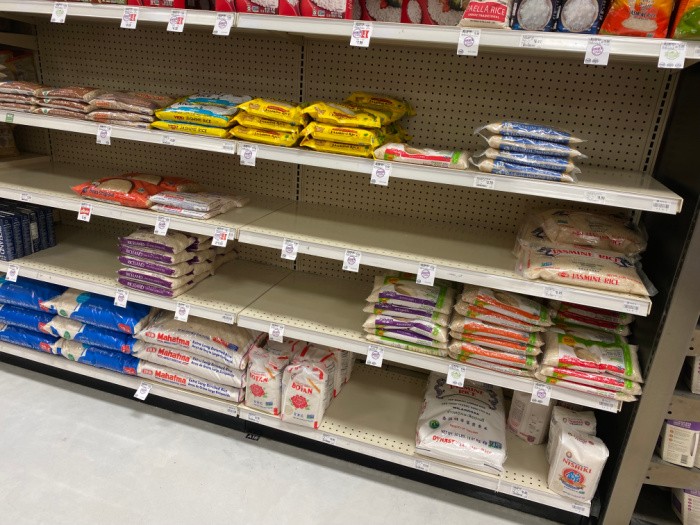
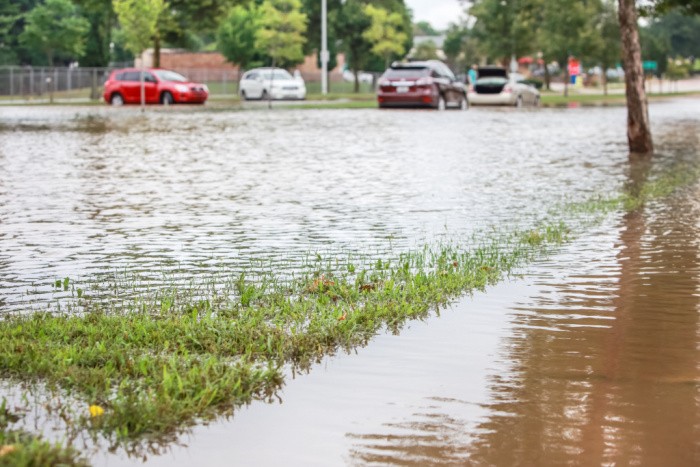


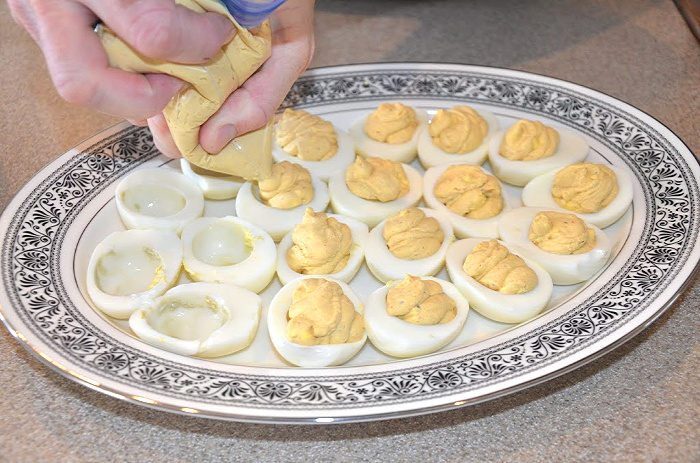
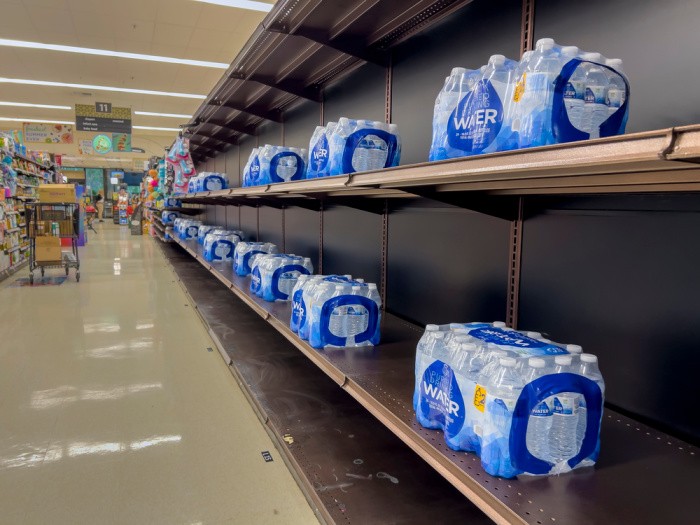



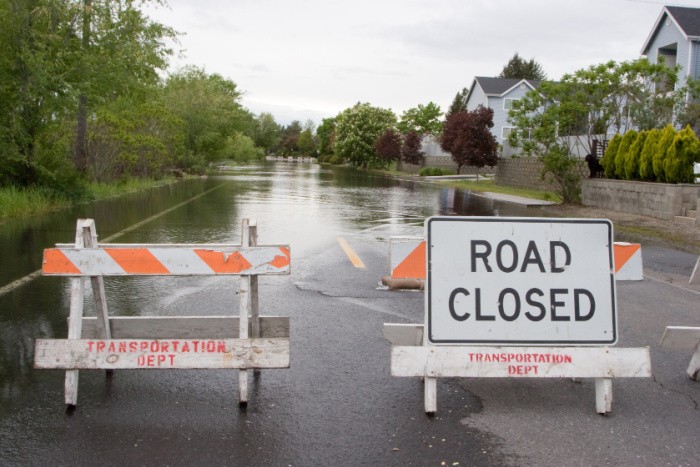



Shop sales folks! Use those reward programs. I have gotten some extremely great deals with these reward programs. I do not pay full price for anything I purchase. Keep your heads up and keep going. We are all here for each other!
Hi Audrey, I love those reward programs! Thanks for the reminder! Linda
I read somewhere that if your neighbor loses their job it’s a recession, if you lose you job it’s a depression.
Hi Chris, wow does that ever make sense. I’m so worried about all the people who are out of work and the restaurants closed for good. Also, all the stores who can no longer make it. The employees may never recover, this the worst situation for so many industries. God bless our world, we need a miracle. Linda
Some reading I have been doing, says the Amish believe in having one year of all needs stored up. Not just food, but fabric, tools, all supplies. The reasoning is, that if something happens, medical, financial, family or weather related, there will not be any temptation to do something wrong or against God.
I wonder how many people had a chance to take stock following the down turn in 2008-2009, and failed to learn from it.
Hi Chris, I wish I could believe people learned from the 2008 disaster. I heard something on National TV that quoted the Marriott owner of all the hotels or whatever. He mentioned this COVID-19 disaster is worse financially than the economic collapse in 2008 and 9-11 combined. That was a powerful statement to me. There are so many people out of work, bankrupt, and suicidal, and some will never recover financially. I believe we are going to have worse times coming. I hope I’m wrong. Linda
Not trying to get political, but it sure looks as though things are headed in a very bad direction with this administration. It’s nuts & frankly, seems intentional. I hope everyone is paying close attention to what’s taking place before we end up like Venezuela.
Hi Amy, oh you are absolutely right. I wish people would think about all this “FREE” money. Nothing is free. I just about choked when the government boasted about giving all this $$$$ to families with kids under 18 years of age and even more if the kids are under 6. Our taxes will go up, they have to!! I wish I could say more but so many blogs, and social media outlets are censored. God help us, we will need it. Our country is a disaster waiting to happen. It’s not if, it’s when. Linda
I’ve been expecting a “greater Depression” for a few years. Not looking forward to it, but expecting it. It’s hard to believe it’s been 100 years since the last one. I grew up with a mother born during the the last depression.
HI Deborah, I have too! I’m expecting it, although with the price of groceries these days, how can families feed themselves? Wow, 100 years! Linda
Linda ~
My daughter and son-in-law have 5 children. They eat well but frugally! A neighbor shot an elk and did not have room for storing it so gave the whole thing to my daughter and her family. They even butchered it and packaged it with no cost!!! That would NEVER have happened had they not moved to the location they live now. They have a huge flock of chickens for eggs and are getting a flock of meat chicks. My daughter has a huge garden now and she preserves her bounty! Eggs are preserved to last the winter, meat in the freezer, canning like crazy, dehydrating, etc. Their next purchases will be a wheat grinder (I just gave her a hand grinder but she wants an electric one) and a freeze dryer. I imagine they will have both before the end of the year. So, how do you feed a family with the grocery prices? That is about the ONLY way a large family can do it.
I only hope that the investments that my son-in-law has made will stand the test of time and they don’t panic! I had co-workers in the past who came into work and each morning they checked their investments. Some moved their invested monies on a near daily basis, then came in the next day and saw they had lost money, panicked and switched their funds. It is better in my opinion to let the money ride – the history of the market shows that it will always rebound to some degree. Panicking makes us do foolish things!!
HI Leanne, i think the investment your daughter and SIL had made in moving (buying land) to grow their own food was an excellent idea. Boy, that elk, was a blessing, that’s so awesome! Those tags are in short supply some years in Utah to get an elk. On the news it shows all these famous movie stars buying up land and growing their own food. I’m sure some have people they pay to help them but they understand the need to grow their own food.
As far as the investments in the stock market, when I was in banking we were taught the market goes up and goes down, let it ride. Some years are better than others. Great idea for her to get an electric wheat grinder, and freeze-dryer, she is young! I have had three electric wheat grinders, I still have two left. I’m too old now to invest in freeze-dryer. But your daughter with a large garden will put it to good use for sure! Love it! Linda
Chris, and Linda ~
I am pretty sure I could eat out of my preps for 8-12 months (probably lose weight as an added bonus!!) and I have in place water storage for a couple of months now. Money seems to be the hardest to stockpile. On a fixed income, that is a challenge. I carry very little debt, but I do carry some. I am now in the process of getting it all paid off!
One of the things I remember that my dad always said about the Great Depression. He said that those who invest money in the stock market and such were hit hard by the depression. But the ones who survived well were the ones who did not depend on the “income” from those investments to live on. Those who panicked when the market crashed were dependent on the income to live. There were stories about the people who committed suicide because of the massive losses. Those who did not panic, survived.
The marked goes up/goes down/goes up/goes down. Depending on how much it goes down will determine the sign of the times. No matter what happens financially, if we can not panic, we will survive and rebound. That rebound was what my dad was talking about.